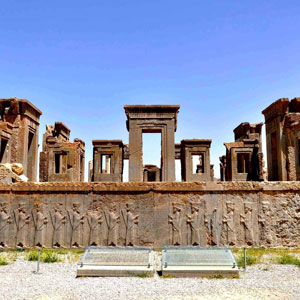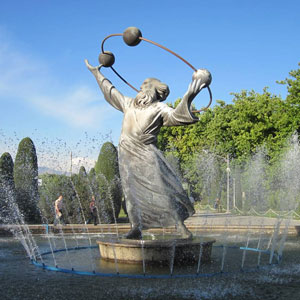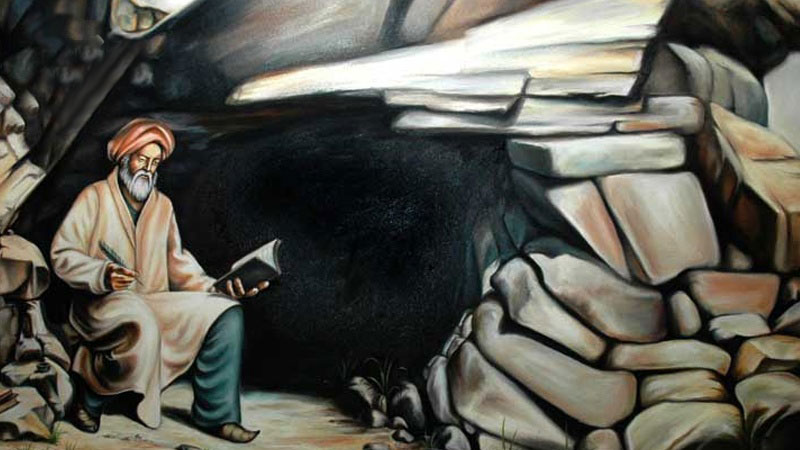 Signin with Google
Signin with Google Signin with Facebook
Signin with Facebook
 History,Literature
History,LiteratureNasir Khusraw, the Eastern Marco Polo

In the 11th century before the Venetian world traveller, Marco Polo would have born, in the Great Khorasan of Iran a great poet and scientist set forth to explore the unknowns throughout his seven years of travelling and exploring Central Asia, Syria, Egypt, and Arabia.
Nasir Khusraw, spelt as Naser Khosrow in Persian, was one of the greatest Persian poets of all the time who had tried to preserve the legacy of an entire nation, the language, by writing in his mother tongue when the official language was Arabic. His exceptional rhetorical skills besides using comprehensible words to convey profound moral and intellectual illustrations, made his poems so favoured that still, people recite them after nine centuries. His best-known work is a detailed record of travelling which is always a valuable piece of Persian literature that informs about the world in nearly one thousand years before.
In the search for the meaning of life
Born in the ancient Greater Iranian Khorasan, Qubadian, in a wealthy and reputable family in 1004 AD. Soon Naser showed great talent and passion for learning sciences of the time. Following his family tradition, Naser took a high rank in the Seljuk court as the leading accountant and financial secretary.
Though he had a luxurious life filled with good friends, wealth and fame, he was not satisfied with his life. Naser always had struggled to find the real meaning, the philosophy of the existence of the universe and felt the need to figure out the true happiness and sadness of human beings.
To answer this desire, he searched a lot, studied every school of thought and talk to many scholars and clergymen. Still, none of them was adequate answers to his inner discontent until a dream changed his life when he was around 40.
Finding the answers in the road
He dreamed of a spiritual man, showing the way to Mecca, the holy city for Muslims and assured him that he would see all the answers to his questions. This dream, as he said in his book, was like a shock, making him conscious that all he had done in the past 40 years was only a waste of time. So, Naser Khosrow decided to abandon his life and status in Khorasan to begin his quest to find the true meaning of a human being.
He started his journey to Mecca through the north of Iran. He wandered through the roads of Azerbaijan and enjoyed his time in the cafés of Armenia. The artistic products and handicrafts of Syrians surprised him. He exchanged ideas with Christians and Jewish fellows during his stay in Jerusalem. Naser Khosrow was curious about almost everything, and small details of customs, rituals, city fortifications, tax collection systems in different cities were interesting to him.

Finally, after some years of travelling and visiting near one hundred cities on his way, he settled in Egypt. During three years in Cairo, he enjoyed the company of staple scholars of the Ismaili sect, a branch of Shia Islam. It seemed that he finally found what he had searched for, so he converted to this sect.
Pir Shah Naser settled down in the homeland
He was 50 that Khorasan ruler bestowed the title of Hojjat -meaning proof, it was a title for supervisors of Ismailis. It invited him to come back home and hold a high rank in the missionary organization of Khorasan. Naser Khosrow found it his mission to propagate the Ismailis' doctrine more and more. Unlike his expectations, theologians and politicians turned against him, that even some of his opponents wanted him dead.
In this dangerous situation, Naser Khosrow was forced to flee and live in exile. Fortunately, he found Badakhshan safe as the local ruler of this remote city in the northeast of Iran, welcomed him. The people of Badakhshan respected Naser Khosrow and entitled him "Pir Shah Naser" during the last years of his life. His hermitage for fifteen years in the Yamgan Mountains near Badakhshan became his last and eternal safe refuge.
Master of Different Genres
Every verse of his poems and writings mirror his character and ideology. Naser Khosrow is an experienced man, a knowledgeable but humble man, an honest narrator having no private motives, a religious person but not a fanatic. He was a master in different genres of travelogue, prose, and poetry.
- Safarnameh, the book or travels is a record of his seven-year journey through the Islamic world. In his most famous work, the hints he gave about the social and political conditions made it a valuable source to study the world one thousand years ago.
- The Divan is the collection of his poems mostly in ghazal lyric and short poems. He used simple metaphorical language to convey moral and ethical concepts.
Naser Khosrow & the West World
Western translators such as P. L. Wilson or Annemarie Schimmel familiarized the west with the analytical abilities and exciting thoughts and ideologies of Naser Khosrow, this gifted Persian philosopher, traveller and poet.
The story of the gourd and the palm-tree
Have you heard? A squash vine grew beneath a towering tree.
In only twenty days it grew and spread and put forth fruit.
Of the tree, it asked: 'How old are you? How many years?'
Replied the tree: 'Two hundred it would be, and surely more.'
The squash laughed and said: 'Look, in twenty days, I've done more than you; tell me, why are you so slow?'
The tree responded: 'O little squash, today is not the day of reckoning between the two of us.'
'Tomorrow, when winds of autumn howl down on you and me, then shall it be known for sure which one of us is the real man!
By Samaneh Zohrabi / TasteIran
